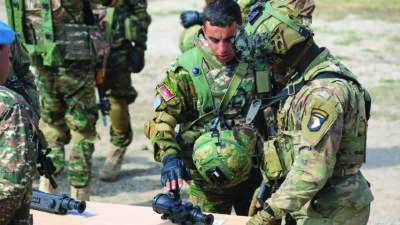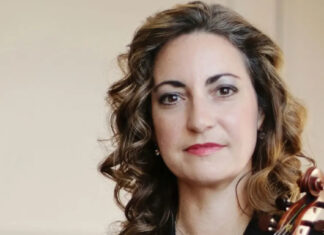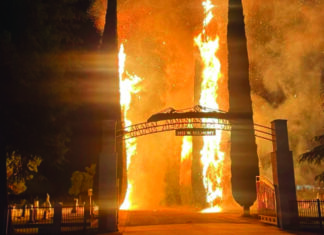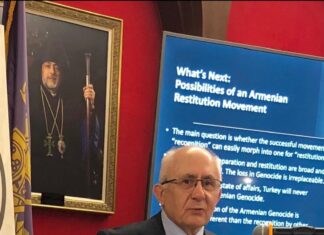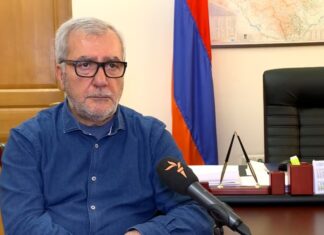Armenians in Germany Commemorate Armenian Genocide
By Muriel Mirak-Weissbach
Special to the Mirror-Spectator
BERLIN — Among the many nations where people gather on April 24th every year to commemorate the victims of the 1915 genocide, Germany holds a special place for three reasons: first, because it was here that the Holocaust occurred, a case of mass murder that was modeled on the Armenian genocide; secondly, because the post-war German political world faced up to what the Nazis had perpetrated. It was not only the fact that many of the criminals were brought to justice at the Nuremburg trials, and that Germany acknowledged it as genocide, but also that in the years and decades that followed, the reality of what had been committed was subjected to historical scrutiny, so that broader layers of the population and members of the successor generations became aware of this past. Germans refer to this process and what it has produced in civil society as “a culture of remembrance” (Erinnerungskultur). The third reason is that Germany’s Turkish population is the largest outside of Turkey, a fact which has a political, social and cultural impact in both countries.
This year memorials took place in several locations, at the historic Paulskirche in Frankfurt as well as in Berlin, and a number of smaller cities. In both Berlin and Frankfurt, the role of Germany then and now was a central theme. At St. Marienkirche in the capital, Archbishop Karekin Bekdjian celebrated the requiem mass and representatives of the German Catholic and Evangelical churches spoke. Musical offerings included liturgical church music from the Middle Ages and pieces by Komitas, played on saxophone, the duduk, counter bass clarinet. Vocal pieces were performed by Artak Kirakosyan, soloist from the Alexander Spendiaryan Opera and Ballet in Yerevan.
In his greeting, Armenian Ambassador Armen Martirosyan addressed issues of a fundamental character. Every year when commemorating the genocide, he said, we ask “Why”: “Why did it happen? Why did the world keep silent…? Why did the great powers close their eyes …to ethnic cleansing? Why did they not bring the criminals to justice? Have we Armenians drawn the lessons from this tragedy?” He went on to note the lamentable fact that “Ethnic cleansing was to become part of political culture, an acceptable way to solve interethnic problems…” in reference to the Holocaust, and the more recent mass murders in Rwanda, Cambodia and the Balkans. “The international community has drawn no lessons from the genocide against the Armenians,” he stated: “immunity from criminal prosecution, indifference and inactivity opened the way for the repetition of such horrible crimes against humanity.”
